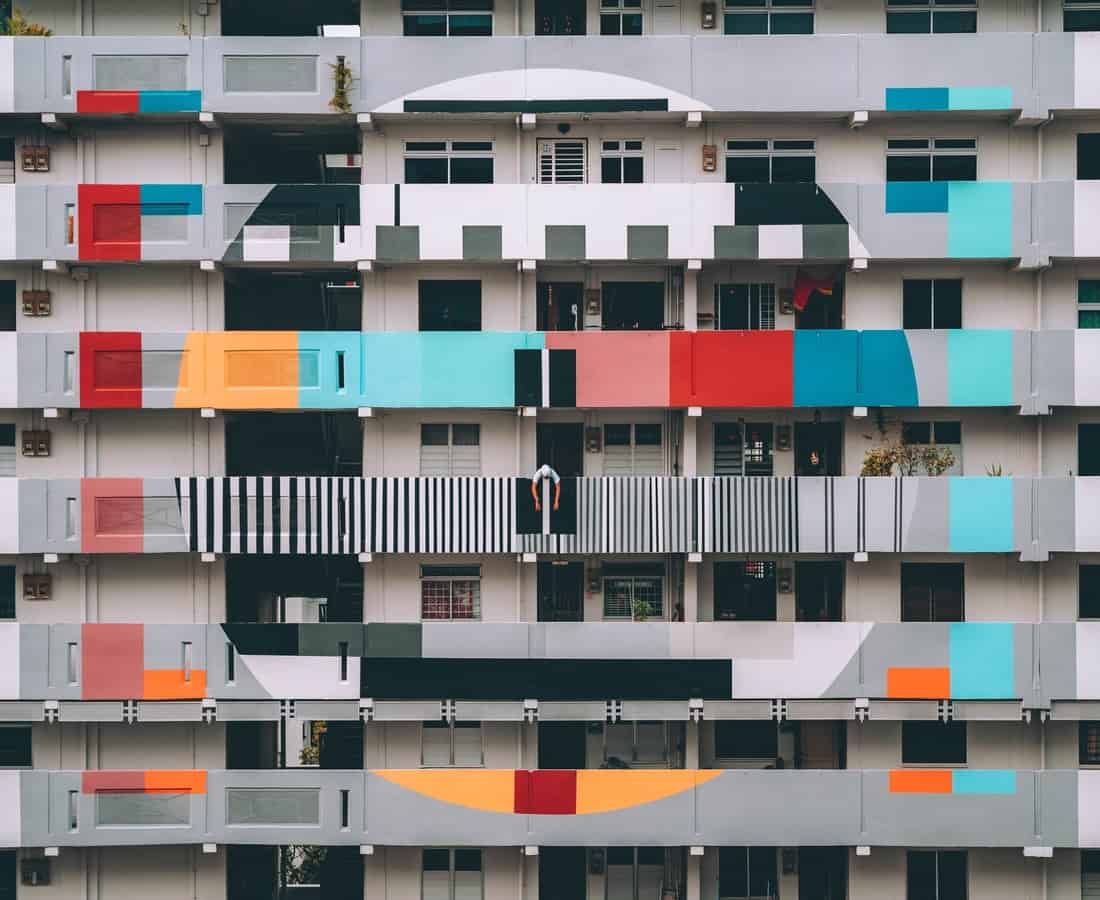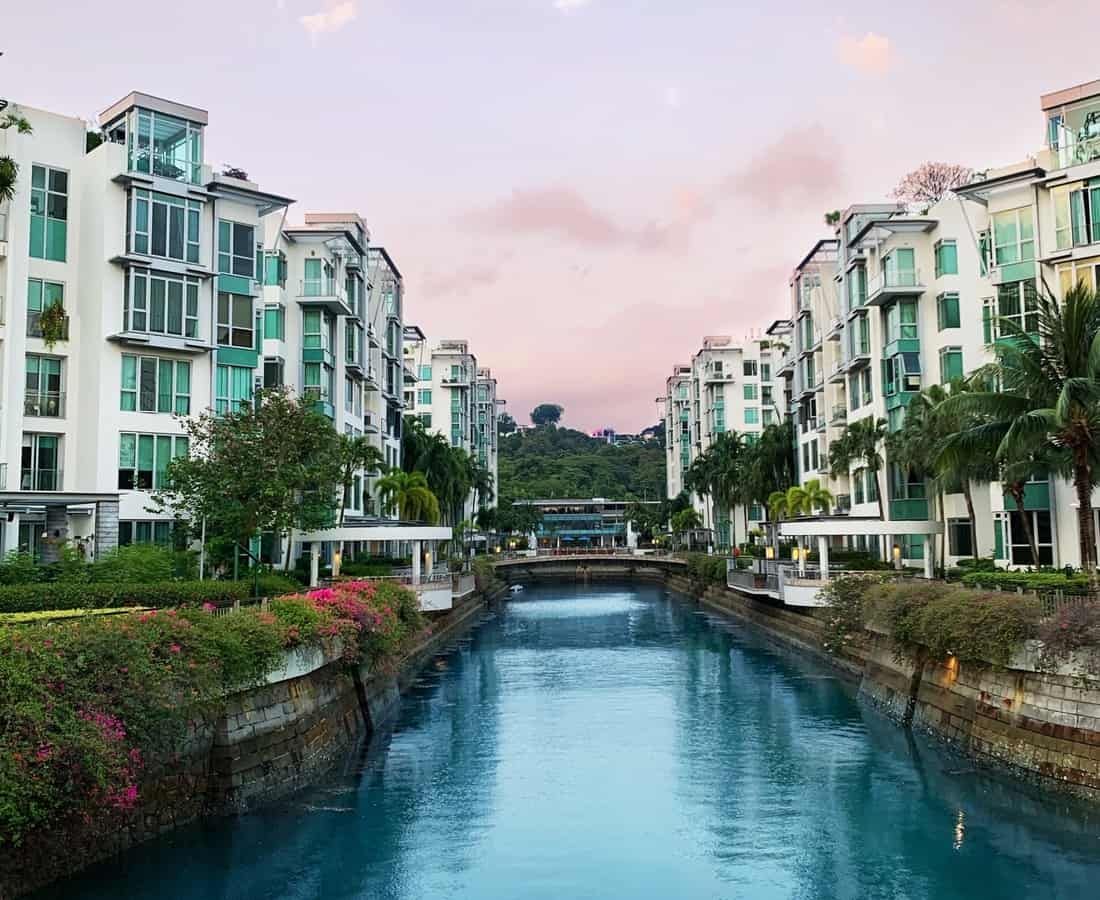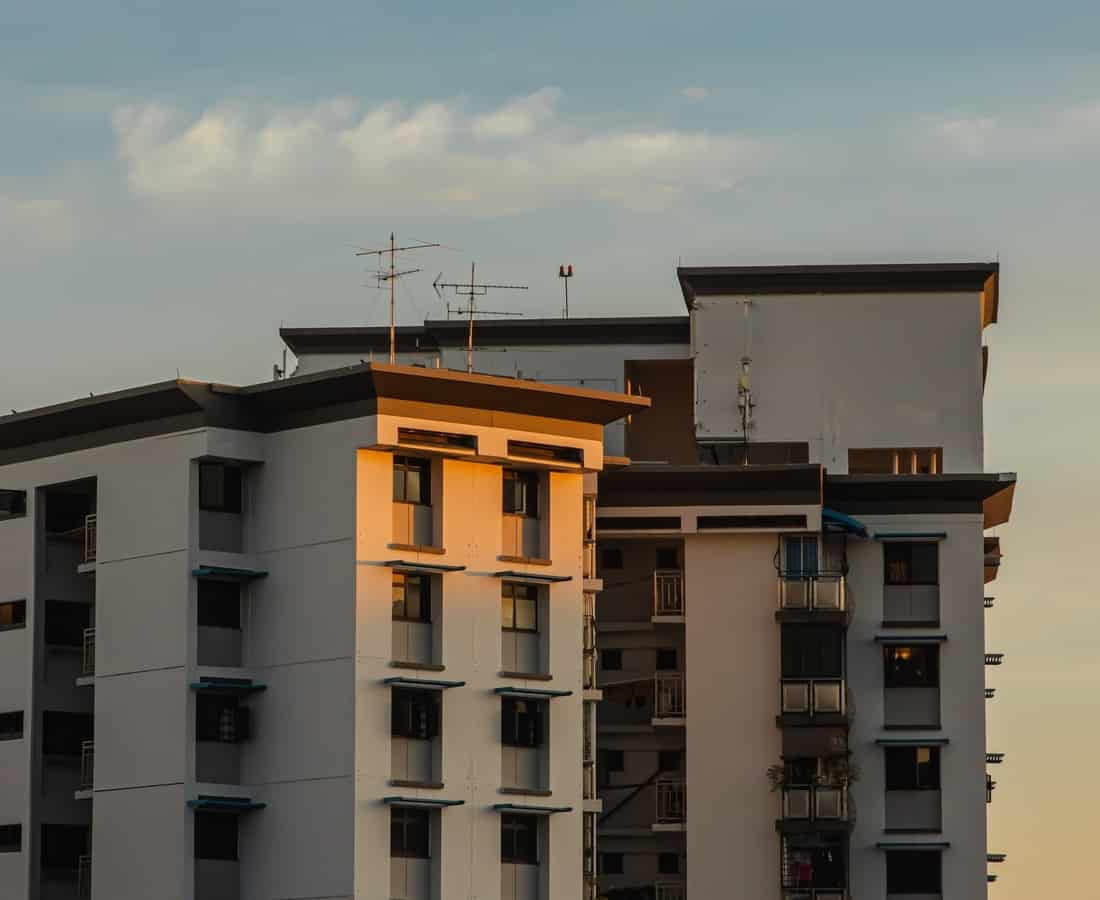The LGBTQ+ Guide to Housing Options in Singapore: Renting, Buying, and Queer-Friendly Resources
PUBLISHED January 14th, 2021 06:00 am | UPDATED January 18th, 2022 11:34 am
It often feels like those who don’t fit the conventional ‘family unit’ in Singapore have to poke around in the bargain bin of housing options, long after everyone has had their pick. As LGBTQ+ Singaporeans, our partners cannot be legally recognised through marriage – and that means forever being boxed into the ‘singles’ section of housing schemes.
Still, we’ve got more breathing space than we did even ten years ago. A 2013 rule change allowed singles to buy BTO flats for the first time, and income ceiling criteria for grants have been raised progressively over the years. If you’re just starting to think about getting your own place, here’s our handy outline of housing options open to you – from renting to buying, under to over 35. And if you’re ready to make concrete plans, we’ve also put together a handful of LGBTQ-friendly property resources.
Housing Options
For Those Above 35: HDB BTO Flat

Once you hit 35 years old, you can (finally) partake in the grand Singaporean rite of passage that is applying for a BTO flat. There’re a few restrictions to note: you and your partner (if applying jointly) must be Singapore citizens and first-time home buyers. Singles are also limited to new 2-room Flexi flats in non-mature estates, i.e. residential areas less than 20 years old such as Choa Chu Kang, Woodlands, and Punggol.
Two housing schemes are open to you. If you and your partner want to legally own a home together, there’s the Joint Singles Scheme, which allows between two to four singles to jointly own a BTO flat and use their CPFs for payment. To qualify, your collective monthly household income cannot exceed S$9,000 during the 12 months before your flat application.
Alternatively, you might want to be the sole owner of your BTO flat, even if you’re planning to live with your partner or friends – that’s where the Single Singapore Citizen Scheme comes in. This requires that your average gross monthly household income be S$7,000 and below. It’s worth noting that the Enhanced CPF Housing Grant (EHG) you get is essentially halved – EHG grant amounts range from S$2,500 to S$40,000 for singles earning below S$4,500, in contrast to S$5,000 to S$80,000 for joint singles earning below S$9,000.
The star attraction of the BTO route is, of course, the price tag. Two-room Flexi flats generally hover around the S$100,000 to S$150,000 range, though they can dip to as low as S$75,000. As you’ve probably heard from straight friends, the downsides are insane balloting stress and a waiting time of three to four years for flat completion. There’s also the question of size – if you’d like more space for your furbabies or home office, the two-room restriction might not suit you.
For Those Above 35: HDB Resale Flat

Looking for options outside the cramped 2-room box? There’s always the resale market to consider. Resale HDB flats aren’t tied to restrictions on flat size, location, or income ceiling, so your budget’s the only limit. What’s more, the process from viewing units to submitting your resale application is much swifter – you could be collecting your keys in three months flat.
As with BTO purchases, you can buy a resale flat once you reach the big 3-5, under either the Joint Singles Scheme or the Single Singapore Citizen Scheme. As long as you’re a first-time homeowner with a monthly household income of below S$9,000 (JSS) or S$4,500 (SSCS), you’ll be eligible for the Enhanced CPF Housing Grant.
There’re a couple of resale-exclusive grants you might snag as well. Under the Singles Grant, joint singles with a monthly household income not above S$14,000 and singles with a monthly income not above S$7,000 can receive subsidies of up to S$25,000 each. If you’re living near your parents (within a 4km radius), the Proximity Housing Grant will net you an additional S$10,000 in grants as well. All these add up to make your resale flat a tad budget-friendlier.
According to data from 99.co, the average price of a three-room resale flat clocked in at nearly S$300,000 in 2019, though you might hunt down more affordable offerings in the north and west. Prices have been creeping steadily upward year on year, with a jump of 4.8% in 2020 alone.
For Those Above 35: New Executive Condominium

The next tier up on the housing price ladder is an executive condominium (EC). ECs have all the frills of a private condo, but generally come at a lower price tag – around 30% cheaper – thanks to government subsidies on land cost. Another key difference is that CPF family grants are available for ECs – however, note that these grants are not open to singles or joint singles.
Singles can buy a new EC only under the Joint Singles Scheme, again at the ripe old age of 35 and above. The gross monthly income of you and your partner must not exceed S$16,000.
As with resale HDBs, the size and location of your EC is entirely up to your budget – though you might have to fork out a higher downpayment. Since HDB housing loans aren’t available for ECs, you’ll likely need a bank loan instead. Should you use a bank loan to pay, you’ll need to pay at least 25% of the purchase price as downpayment, in contrast to only 10% downpayment with HDB loans.
How much can you expect to splash out for an EC? Even for two-bedders, prices might soar upward of a million for condos in the city centre, falling to around S$800,000 for less central locations. Driving up prices is the golden combo of high demand plus low number of new launches each year; you can check out HDB’s list of available and upcoming EC projects here.
For Those Below 35: Resale Executive Condominium

So 35 is absurdly far away for you, but you don’t have the dough for a private property (who does?). In this case, your only bet for property-buying is a resale EC. ECs can be resold on the open market after five years, making them a free-for-all – you won’t need to apply under schemes or face income restrictions.
Similarly to new EC purchases, you’re on your own when it comes to money matters. HDB loans and CPF grants aren’t applicable, so if you’re taking out a bank loan, you’ll need to front 25% in downpayment from your own pocket.
Between six- to ten-years of age, resale ECs may not be significantly more pricey than new ECs; past their tenth year, they appreciate sharply since they can now be sold to foreigners in addition to Singaporeans and PRs. To find ECs in that sweet pricing spot, you can track when their 5-year Minimum Occupation Period (MOP) is up through the HDB platform or on helpful sites like resaleec.sg.
For Those Below 35: Renting

The most immediately accessible option, renting a room or entire house is the way to go when you don’t have the deep pockets for an EC. Single rooms in a non-central area can start from as low as S$600 per month, while a three-room non-central flat might hover around a very pocket-friendly S$2,000. What’s more, renting gives you plenty of flexibility to move around, upgrade, or downgrade as you please.
The dark side of flexibility, of course, is instability – LGBTQ folks tend to be at higher risk of (perfectly legal) eviction. Standard tenancy agreements, based on templates provided by the Council for Estate Agencies, feature a clause allowing landlords to terminate the lease should tenants “use the flat for any illegal purpose or activities of an improper nature”.
Thanks to an archaic little law known as 377A, sex between men is technically illegal; other queer sexual activities may easily be judged ‘improper’ as well. To give yourself more peace of mind, you can propose to remove the phrase on improper activities while negotiating your tenancy agreement. This doubles up as a good gauge for how LGBTQ-friendly your landlord might be – it’s best to sound this out before you sign on the dotted line, after all.
LGBTQ+ Property Resources
![]()
Ready to chase down your home sweet home, somewhere over the rainbow? While there’re a ton of buying and renting resources out there, we’ve sifted out a few LGBTQ-specific ones that might come in handy.
If you’re looking for queer-friendly property advice from experts, William Tan is a renowned force in the field. He’s a real estate agent with wide-ranging expertise in HDB sales, apartment rental, and more; many of his clients have been LGBTQ+, and his good name has certainly spread among the community. Besides a Facebook group for LGBTQ-friendly property listings (Singapore LGBTQ Property Listing – Buy, Sell and Rent), he’s also the brains behind Prident – an LGBTQ+ collective producing content on financial matters like property, investment, and insurance.
For those planning to rent, another spot where you can search for queer-friendly property listings is Roomies. This rental site allows landlords to add an LGBTQ-friendly tag to listings, so you can be assured of their inclusivity. It’s also worth taking time for a read of Same But Different, a legal guidebook created by practising lawyers and veteran activists. This free e-book is a goldmine of legal info for LGBTQ+ couples and families on everything from cohabitation contracts to CPF, housing to health insurance.

